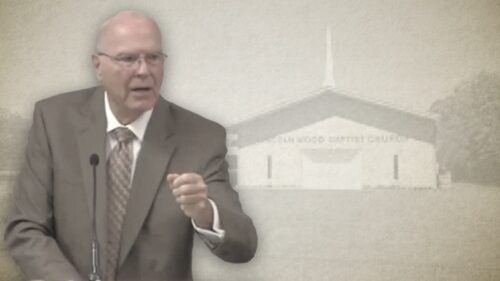-
6 A Yea And Nay Gospel Considered
What a vast fund of devices the devil possesses in order to deceive his own subjects, and to worry the people of God. Never at a loss, he is continually going about seeking whom he may devour. And if he cannot gain his ends by presenting to the mind licentious indulgences, he will endeavour to lull the soul with a natural religion; and making that religion appear as spiritual as possible, all who are left a prey to his bait "call evil good, and good evil; put darkness for light, and light for darkness; put bitter for sweet, and sweet for bitter." This is the reason we have that gospel preached in the present age which cannot, I humbly conceive, bear a more suitable title…
-
33 Bible Doctrine – The Doctrine Of The Free Offer
I would like to welcome you back to another study in Bible Doctrine. In our previous study, I began to tackle the three controversial issues which separate 17th century Hyper-Calvinism from 18th century Hyper-Calvinism—the doctrines of duty faith, the free offer and the ten commandments as the believer’s rule of conduct. For this study, I would like to look at the subject of the free offer. The free offer is the belief that the preacher has the biblical mandate to offer the gift of God unto salvation to unregenerate sinners. There is reference to it in the three major confessional statements of the 17th century—(1) The 1646 Westminster Confession—“He freely offers unto sinners life and salvation by Jesus Christ”; (2) The 1658 Savor Declaration—“he freely…
-
The Doctrine Of The Free offer
FOR A COMPLETE ORDER OF WORSHIP, INCLUDING BIBLE READING, HYMNS AND SERMON...
-
3 On Offering The Gospel
It would be well if the Lord's people would bear in mind the apostle's words, Beware lest any man spoil you through philosophy and vain deceit, after the tradition of men, after the rudiments of the world, and not after Christ. For such is the philosophy and vain deceit of men, that they are continually making the commandments of God of none effect by their traditions. Thus fleshly wisdom too often takes the place of simplicity and Godly sincerity among religious teachers : so that, in order to make the gospel of Christ palatable to human nature, and congenial to man s depraved reason, many dare to interlope earthly principles into the heavenly religion of the Son of God. Thus either to suit man's pride,…
-
2 Natural And Spiritual Sonship
Much has been said by blind guides concerning the duty of the creature to his Creator, and the privileges of "the children of Zion." But these infinitely distinct things are often blended, so that error is more easily propagated, and the unwary more easily deceived by a speciousness of truth. It will, therefore, be my province in this place, to call the reader's attention to the difference between natural and spiritual sonship. Christ is called "a Son," he is so pre-eminently and officially. Thus pre-eminently it is said of him "This is my beloved Son,” Matt. 3:17. being "the first-born," or chief, "among many brethren," Rom. 8:29. It is said of him officially, "Christ as a son over his own house," Heb. 3:6. I say…
-
“The Grace Of God As Depicted In The Oracles Of God”: Preface And Contents
I again appear before the public, in the character of an author; and as my object is to publish truth, that the creature may be abased, the church of God fed, the work of the Redeemer unfolded, the love of the Father extolled, the ministry of the Holy Ghost honored, and the glorious fullness of Jehovah Jesus held forth, for the edification of the blood-bought objects of everlasting love; I cannot conceive that any apology is needful, from me, to those for whose use this little work is designed. And as to men who know not what truth is,. because not under the guidance of the Spirit of Promise, it is neither my desire, nor is it in my power, to adduce any argument that…





